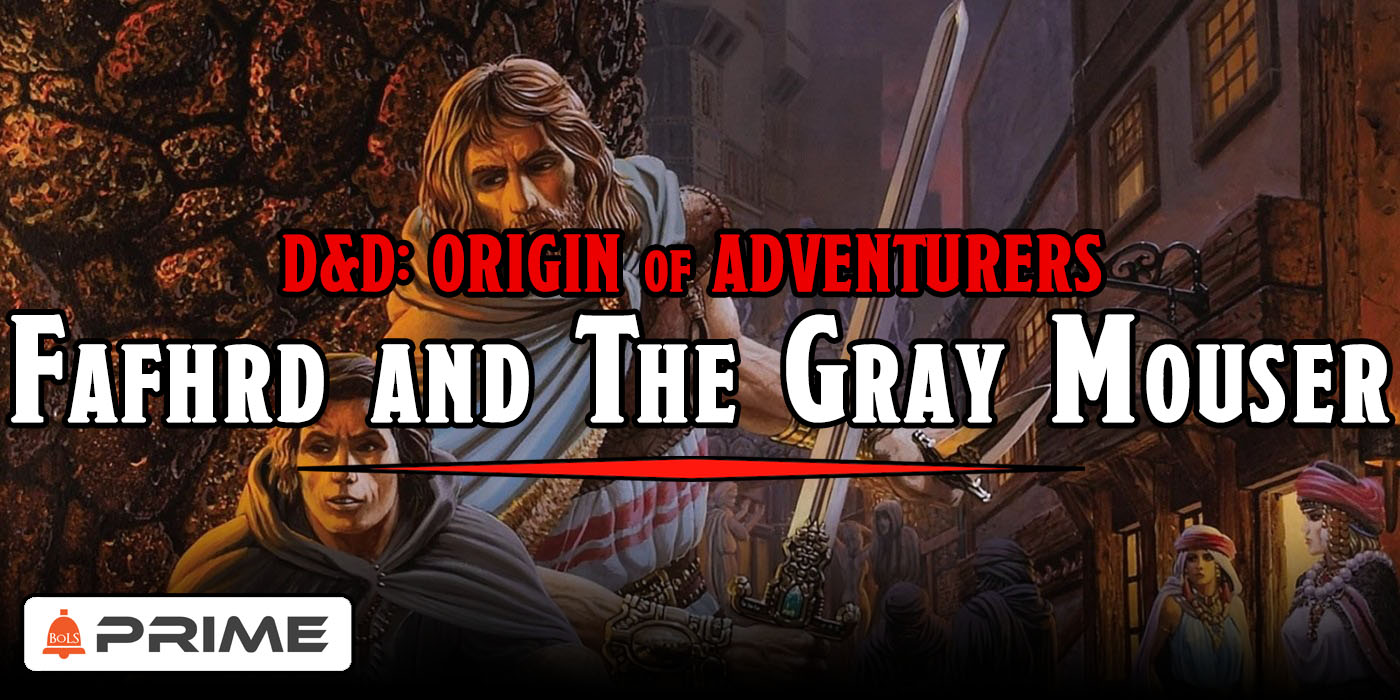In the years before Dungeons & Dragons, two erstwhile heroes laid the foundation for every PC ever. Including yours.
Dungeons & Dragons is a genre unto itself. It's not quite high fantasy, nor is it strictly medieval dark fantasy. Through the years, D&D has acquired a texture from rolling, Katamari-like, through its various influences. D&D heroes are neither tragic nor tortured. Nor are they paragons of virtue. Instead most adventurers tend to be, well...
Whether it's taking everything that isn't nailed down, or trying to figure out how to make a 10 foot pole lethal, adventurers are basically chaos monkeys. And years before D&D was a glimmer in the eyes of Gygax and Arneson, two characters laid the blueprint for all of this. Come and meet Fafhrd and the Gray Mouser.
Fafhrd and the Gray Mouser
It doesn't get more D&D than Fafhrd and the Gray Mouser, Fritz Leiber's most famous duo. These two are the stars of Lankhmar, a fantasy city so well developed it became a boxed set.
That's how integral these two are to the DNA of D&D. Fafhrd and the Gray Mouser are basically D&D players. Their antics capture the heart of PCs to a tee. And you can see why in ...

